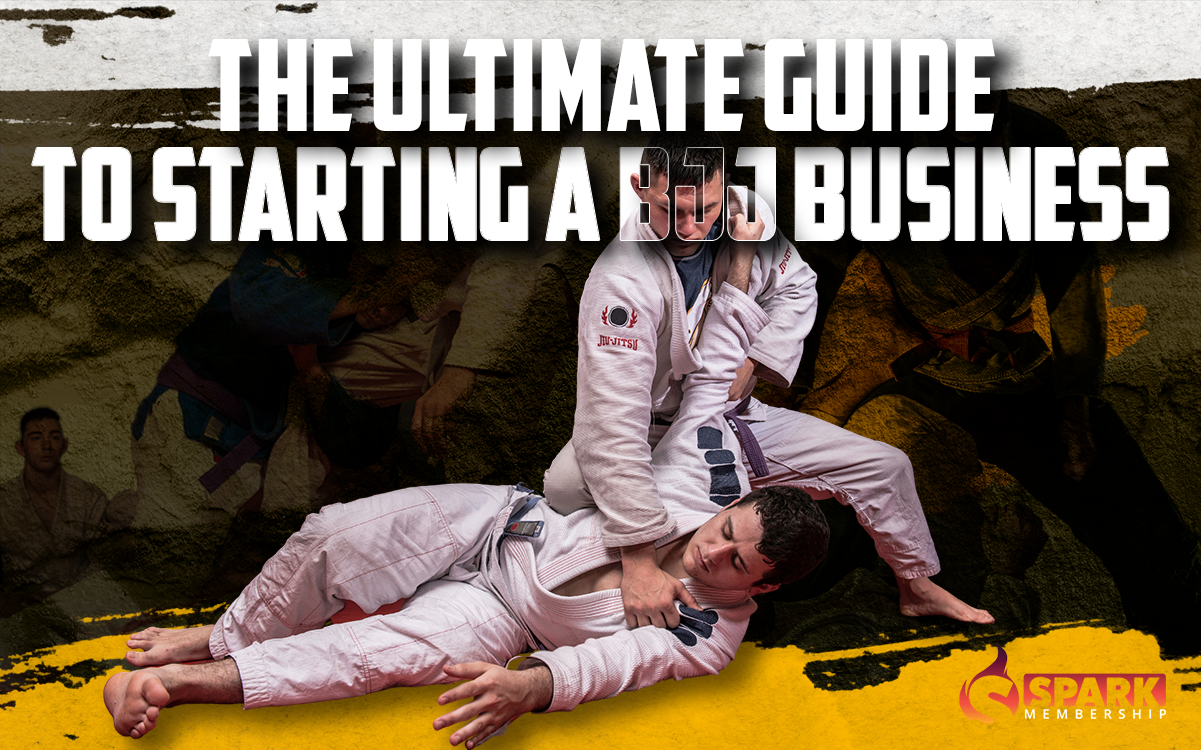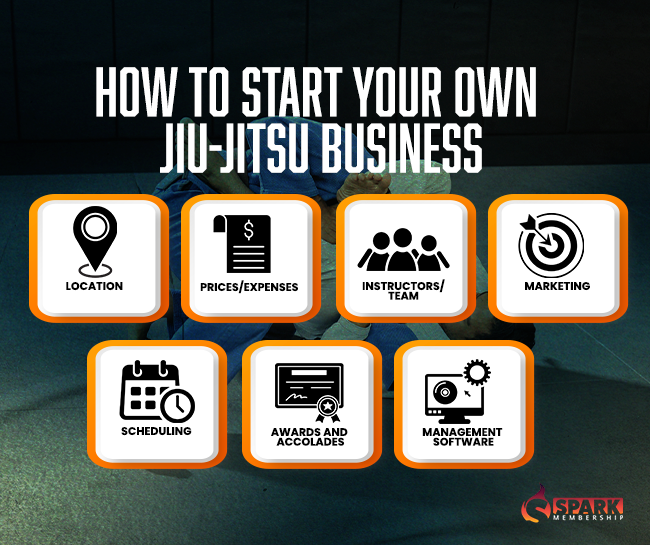
Many practitioners may dream of owning their own BJJ studio. It may have started out as a daydream, or as a serious commitment, but everyone who trains jiu-jitsu seriously has thought about having a career in this specific martial art. Before starting a BJJ business, there are many things to consider, such as your total commitment and passion for the sport. Once most of the mental barriers have been cleared out, it is time to start looking at actually building the business.
Starting a BJJ business may not be what it seems from the outside, but it can definitely be rewarding. Transitioning over from your regular job to teaching your hobby is extremely fulfilling, but be prepared to face a few realities along the way. In this article, we will go over some of the top Jiu-Jitsu academy owners, their thoughts on the transition from hobby to business, and ultimately, the top things you should consider to build your dojo and clientele.
💡 | Did you know?
Brazilian jiu-jitsu concentrates on ground combat techniques and submission grips utilizing joint-locks and chokeholds to offset any strength or size advantages. Physical strength may be neutralized or increased on the ground by using effective grappling tactics.You might also want to read How To Optimize Attendance In Your Kids Jiu Jitsu Class
The Jiu-Jitsu Mindset

According to interviews with top BJJ practitioners and academy owners, Roy Dean, Liam Resnekov, Adilson Higa Dorval, and Yuki Ishikawa, they had the following advice for new business owners:
- You must really love Jiu-Jitsu
Roy Dean began his academy due to his burning desire and passion for Jiu-Jitsu so that he could train in his own style and teach students and training partners in the same way. He advocates that you must have a burning love for this, not a slight enjoyment. He mentions there will be a lot of hard work, 7 day weeks, and many 14+ hour days. Not only will you be training, but you must run your business alongside that.
- You must develop your own style
Liam Resnekov started his own Jiu-Jitsu academy due to his desire to teach his students in a particular style that he had tweaked from his years as a practitioner. Your first students will come looking for something new and will have many questions about your lineage, style, commitment, and training days/partners. Prior to making the shift from martial artist to business owner, make sure you have something to teach.
- You need to detach yourself from training to work on your business
Yuki Ishikawa started his dojo as a way to train often. He did not have any clubs around him and wanted to make his own. Of the owners listed here, Yuki actually did not want to start a business at all. He acquired a place to train, and students started showing up. He realized there is a lot of office work involved in running a BJJ business, and that he would often get to train more as a practitioner than a business owner. His advice is that you must understand what you can and cannot do, have the right expectations, and have a team or program to help you when you make mistakes.
- You must make a conscious decision about making Jiu-Jitsu a lifestyle:
Adilson Higa Dorval opened his dojo in Brazil, the birthplace of BJJ. He had been training since 1992 in US and Japan. In 2009, he suffered a tragic accident and made a strong commitment that BJJ would be his lifestyle and source of income. His advice is that opening your own BJJ academy will be a state of constant learning and that you must always evolve and work on yourself, especially in this industry. When times are tough, only your commitment will pull you through.
How to Start Your Own Jiu-Jitsu Business

If you’ve made it this far, congratulations. Often, the deciding factor about whether to start a BJJ business or not is not the expenses, obstacles, or challenges, but getting into the correct mindset to make the transition. With that being said, below are the best things to consider when starting your own BJJ business:
- Location
It is recommended to start with a small location and grow organically. Find a small space for your dojo and begin building a loyal clientele of close friends. Get to know the neighborhood and be involved in the BJJ scene, as dojo instructors and practitioners will usually keep in contact.
- Prices/Expenses
Further to the above, it is better to start small and grow organically. Starting a dojo is extremely costly when going straight for state-of-the-art facilities and equipment. Although you may believe your students want fancy things, your initial classes will be small and intimate. This helps to keep costs down and to scale appropriately.
- Instructors/Team
Hiring another instructor is seldom the choice when first starting out. You want to start your own BJJ academy to train and teach your style. Often, if you find yourself needing someone to teach the class, your staff options are right in front of you. An overwhelming majority of student instructors will be from your very own academy. Consider also administrative staff to help coordinate and cleaning staff to help keep the studio professional and free of health hazards.
- Marketing
Build your brand and social media presence prior to investing heavily in paid advertising. As mentioned above, it is better to start small and grow organically at first, as getting your BJJ business off the ground will be extremely difficult if you’re moving too quickly.
- Scheduling
This pertains to both classes and employee schedules. Make sure to adopt a solution that is right for you and can be broadcast and easy to handle. When scheduling, consider your own personal time and time to run the business, as burnout can be an extremely unsuspecting, but destructive, force.
- Awards and accolades
Why do your students want to train with you and not someone more established? Make sure to present your lineage, accolades, awards, or professional fighting/coaching career around your studio, and be sure to answer any questions.
- Management software
Starting a BJJ business is already difficult, let alone building out an entire team, marketing plan, scheduling, taking payments, outsourcing, communicating with suppliers, and many more administrative and operational tasks. Why not get BJJ management software to alleviate this pressure? Spark Membership is the number one management software in the martial arts space. Try it now for just $1.